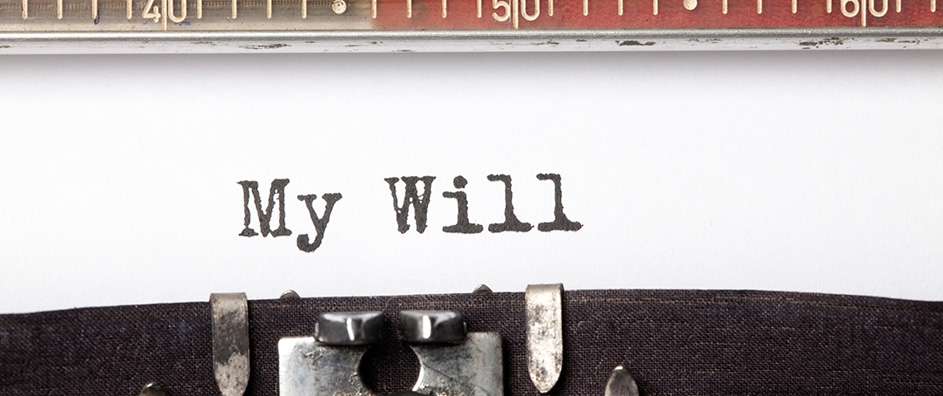The views expressed in our content reflect individual perspectives and do not represent the authoritative views of the Baha'i Faith.
Many people, when they reach an advanced age, start making practical preparations for their passing.
My parents did, bless their hearts. When they reached their eighth decade, my mother began to pare back their possessions, giving things away to their children and grandchildren. She “put their affairs in order,” as the phrase goes, by taking care of the details of their finances. My mother and father wrote a will and appointed an executor. Then they arranged their own funerals, stipulating how they wanted to be memorialized and interred. These kinds of physical arrangements do tend to focus the mind on the spiritual realities of death, though.
That’s probably why one day my mother, who had no particular faith despite the fact that all of her children had become Baha’is, asked me about the Baha’i view of immortality. Since she had always loved reading the Baha’i writings and prayers, I gave her these two quotes:
And now concerning thy question regarding the soul of man and its survival after death. Know thou of a truth that the soul, after its separation from the body, will continue to progress until it attaineth the presence of God, in a state and condition which neither the revolution of ages and centuries, nor the changes and chances of this world, can alter. It will endure as long as the Kingdom of God, His sovereignty, His dominion and power will endure. It will manifest the signs of God and His attributes, and will reveal His loving kindness and bounty. – Baha’u’llah, Gleanings from the Writings of Baha’u’llah, p. 154.
…it is evident that life is the expression of composition, and mortality, or death, is equivalent to decomposition. As the spirit of man is not composed of material elements, it is not subject to decomposition and, therefore, has no death. – Abdu’l-Baha, The Promulgation of Universal Peace, p. 306.
She thanked me, but didn’t say much about them, only that they comforted her. She told me she wished she knew what lay ahead, that she had some certitude about the next life. I could tell, though, when we talked she still had some fear of the unknown that lies beyond death. I hoped, when I saw the doubt and turmoil in her eyes, that she wouldn’t go to her death afraid and unsure:
Know thou that every hearing ear, if kept pure and undefiled, must, at all times and from every direction, hearken to the voice that uttereth these holy words: “Verily, we are God’s, and to Him shall we return.” The mysteries of man’s physical death and of his return have not been divulged, and still remain unread. By the righteousness of God! Were they to be revealed, they would evoke such fear and sorrow that some would perish, while others would be so filled with gladness as to wish for death, and beseech, with unceasing longing, the one true God — exalted be His glory — to hasten their end.
Death proffereth unto every confident believer the cup that is life indeed. It bestoweth joy, and is the bearer of gladness. It conferreth the gift of everlasting life.
As to those that have tasted of the fruit of man’s earthly existence, which is the recognition of the one true God, exalted be His glory, their life hereafter is such as We are unable to describe. The knowledge thereof is with God, alone, the Lord of all worlds. – Baha’u’llah, Gleanings from the Writings of Baha’u’llah, p. 345.
 I wished so much that I could find a way to help my mother make the transition to the next existence with some of that joy and gladness. We talked more, I sent her books to read, but I wasn’t sure anything was really getting through.
I wished so much that I could find a way to help my mother make the transition to the next existence with some of that joy and gladness. We talked more, I sent her books to read, but I wasn’t sure anything was really getting through.
Then, suddenly, she called one day and told me she’d had a seizure. My father had taken her to the doctor, and her diagnosis and prognosis were conclusive and terminal—she would die from a brain tumor within a few months. She was 84 years old. She told me she had elected to forego treatment, not wanting to spend her last days in a hospital bed undergoing chemotherapy.
So at the end of my mother’s physical existence, I had the privilege of standing at her bedside and holding her hand as she died. Surrounded by her children and grandchildren and even one great-grandchild, she passed away peacefully, after a long, loving and productive life.
In the last few moments of her time here on Earth, despite her halting breath and semi-comatose state, all of her progeny crowded into her Arizona hospice room to read Baha’i prayers. We wanted to send her soaring into the spiritual world. My wife Teresa began to say one of her favorite prayers:
O God, my God! Lowly and tearful, I raise my suppliant hands to Thee and cover my face in the dust of that Threshold of Thine, exalted above the knowledge of the learned, and the praise of all that glorify Thee. Graciously look upon Thy servant, humble and lowly at Thy door, with the glances of the eye of Thy mercy, and immerse him in the Ocean of Thine eternal grace. – Abdu’l-Baha, Selections from the Writings of Abdu’l-Baha, p. 319.
As Teresa said the words “I raise my suppliant hands to Thee,” my mother, who hadn’t moved in many hours, suddenly rose to a sitting position and raised both of her hands toward the ceiling, her arms extended imploringly. We all saw it. A few people gasped, thinking that she was suddenly reviving.
But that didn’t happen. As Teresa kept reading the prayer, my mother slowly brought her arms back down, and lowered her head to the pillow, and never woke up. She died a little while later.
As I think about that moment, I hope that her movement from this world to the next gave some gladness and joy to her soul.
You May Also Like
Comments

















Warm regards, Radha
Sayings of no official foundation attributed to ‘Abdu’l-Bahá, possibly in Pilgrims’ Notes, once informed an atheist: “the god in whom you put no faith, we too do not believe in.” And, without an apostrophe as used in the possessive case: “We are all gods,” - long pause - “and unto God we shall return.” This latter saying alludes also to Bahá’u’lláh’s serious and weighty reference to the noble Koran 2:156, (GWB 165)
I've filed some of the Master's humor as i m o its matchless for sensitivity, a virtue I'm working on
Baha'i love
Paul
CROSSING THE BAR Alfred Lord Tennyson
Sunset and evening star,
And one clear call for me!
And may there be no moaning of the bar,
When I put out to sea,
But such a tide as moving seems asleep,
Too full for sound and foam,
When that which drew from out the boundless deep
Turns again home.
Twilight and evening bell,
And after that the dark!
And may there be no sadness of farewell,
When I embark;
For tho’ from out our bourne of Time and Place
The flood may bear me far,
I hope to see my Pilot face to face
When I have crost the bar.